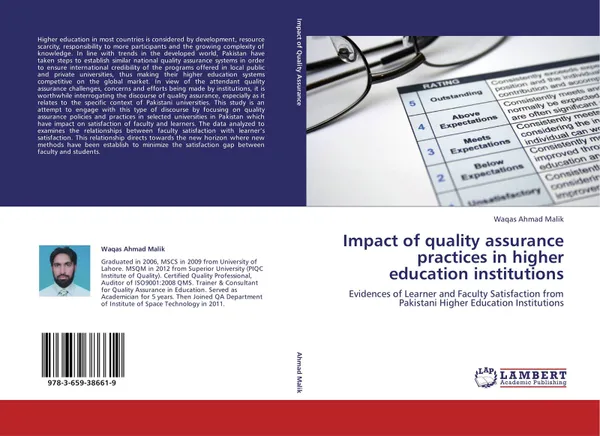Impact of quality assurance practices in higher education institutions
📘 Higher education in most countries is considered by development, resource scarcity, responsibility to more participants and the growing complexity of knowledge. In line with trends in the developed world, Pakistan have taken steps to establish similar national quality assurance systems in order to ensure international credibility of the programs offered in local public and private universities, thus making their higher education systems competitive on the global market. In view of the attendant quality assurance challenges, concerns and efforts being made by institutions, it is worthwhile interrogating the discourse of quality assurance, especially as it relates to the specific context of Pakistani universities. This study is an attempt to engage with this type of discourse by focusing on quality assurance policies and practices in selected universities in Pakistan which have impact on satisfaction of faculty and learners. The data analyzed to examines the relationships between faculty satisfaction with learner’s satisfaction. This relationship directs towards the new horizon where new methods have been establish to minimize the satisfaction gap between faculty and students.
Мнения
